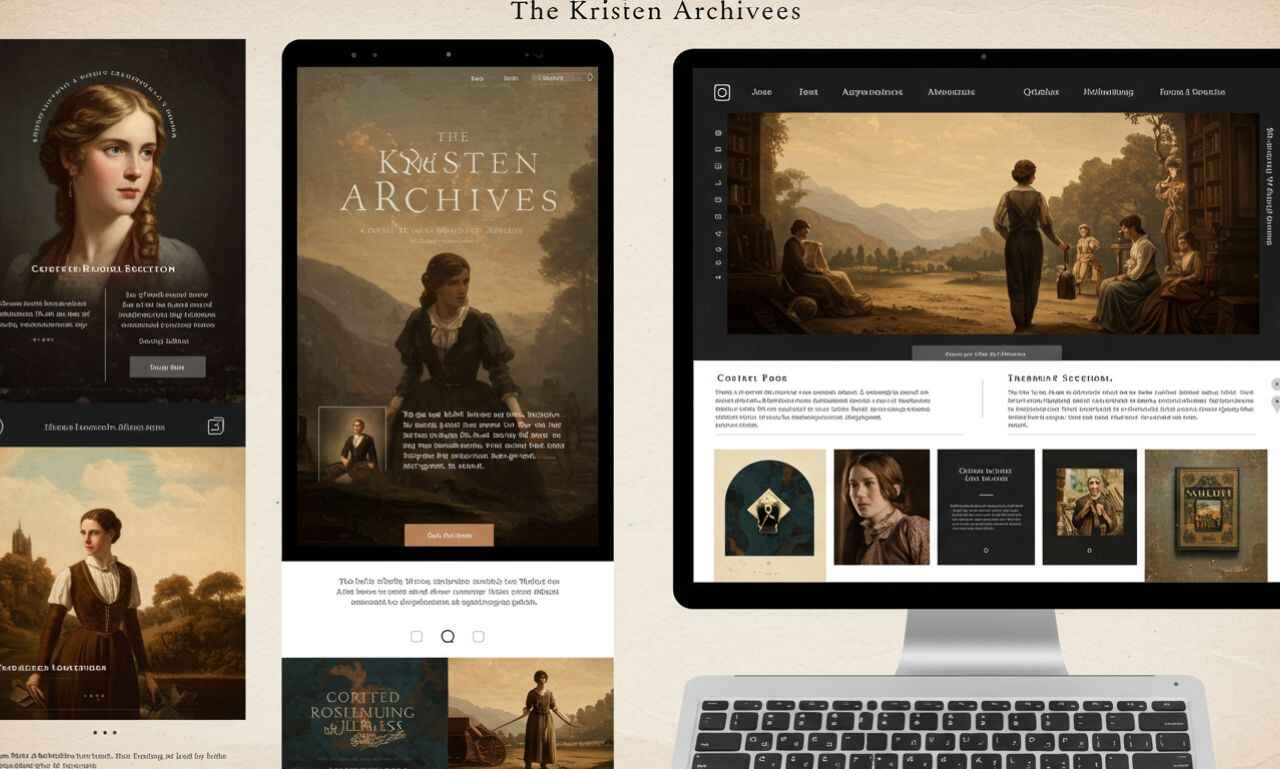In an age where digital platforms have become the backbone of literary sharing, archives play a vital role in preserving creative works for future generations. One such online repository that has attracted attention from readers and writers alike is the Kristen Archives. This digital collection represents the power of storytelling, showcasing the importance of preserving literary voices in a constantly evolving online world.
In this post, we’ll explore what the Kristen Archives are, how they became an important part of online reading culture, and what lessons they offer for digital content preservation and community storytelling.
What Is the Kristen Archives?
The Kristen Archives is an online library designed to store, organize, and share creative stories written by independent authors. Over the years, it has become a hub for people who value creative expression, narrative experimentation, and cultural diversity in literature.
Unlike traditional publishing houses that filter content through editors and industry gatekeepers, the Kristen Archives offers a more community-driven approach. Writers from different backgrounds can contribute their stories, while readers can explore a wide range of genres, styles, and themes in one accessible space.
The Purpose Behind the Kristen Archives
The purpose of the Kristen Archives is to preserve and promote creativity. It ensures that stories—whether from amateur writers or experienced authors—don’t disappear into obscurity. This concept reflects a broader digital movement: protecting online literature from vanishing due to expired domains, closed forums, or forgotten websites.
Furthermore, the archive fosters an appreciation for storytelling itself. By maintaining a database of works, it helps readers rediscover narratives that might otherwise be lost in today’s fast-paced online environment.
The Importance of Digital Literary Preservation
As more writing moves online, the need for digital preservation becomes urgent. The Kristen Archives serves as an example of how communities can maintain long-term access to stories in a sustainable way.
Key benefits of digital literary preservation include:
-
Cultural Continuity: It ensures that unique perspectives and creative voices remain available to future generations.
-
Educational Value: Students and researchers can explore early examples of online literature and understand the evolution of storytelling on the internet.
-
Accessibility: Anyone with an internet connection can access stories, encouraging a love for reading across borders and backgrounds.
In essence, archives like Kristen Archives are not just storage systems—they’re living libraries that celebrate human imagination.
How the Kristen Archives Differs from Traditional Libraries
Traditional libraries operate within physical constraints and rely on publishing cycles. In contrast, the Kristen Archives functions entirely online, allowing continuous updates and contributions.
Key Differences Include:
-
Instant Access: Users can read stories without physical limitations.
-
Community Participation: Contributors can submit their works directly.
-
Open Variety: The collection reflects multiple genres, voices, and perspectives.
-
Dynamic Growth: New submissions can be added anytime, keeping the archive fresh.
This model mirrors the shift toward user-generated content, which has reshaped modern digital culture.
The Role of Online Archives in Modern Storytelling
Storytelling has evolved dramatically since the rise of the internet. Today, online archives like Kristen Archives serve as both creative spaces and preservation platforms. They enable writers to experiment with formats that might not fit traditional publishing norms.
Writers can post:
-
Short fiction and novellas.
-
Personal essays.
-
Serialized narratives.
-
Genre-specific creative pieces.
By giving authors freedom to publish independently, the archive supports literary innovation and encourages authentic expression.
Accessibility and Inclusivity
Another standout feature of Kristen Archives is its accessibility. The platform typically presents a simple interface, making it easy for readers to browse and discover new stories without technical barriers. This accessibility is a cornerstone of inclusive digital culture, ensuring that creativity is not limited to large publishing networks or academic institutions.
Additionally, the archive encourages contributions from writers around the world. That diversity of perspectives enriches the overall literary ecosystem and ensures a more global representation of creative voices.
The Evolution of Online Reading Communities
Before social media and self-publishing platforms like Wattpad or Medium became popular, community-based archives were essential for connecting readers and writers. Kristen Archives was part of that early wave, helping to cultivate online literary networks that thrived on feedback and shared interests.
Even today, such archives serve as important community spaces where readers can engage directly with stories, comment on them, and share them with others who appreciate the same genres.
Challenges Faced by Digital Archives
Despite their importance, online literary archives also face challenges:
-
Copyright and Attribution Issues: Ensuring proper credit for authors is vital.
-
Server Maintenance: Hosting large collections requires continuous funding and management.
-
Data Security: Safeguarding stories from loss or hacking is a priority.
-
Changing Web Standards: Websites must evolve to remain compatible with new devices and browsers.
The Kristen Archives continues to adapt, reminding us that digital preservation requires both technical infrastructure and community commitment.
Why the Kristen Archives Still Matters Today
Even in 2025, as new publishing technologies emerge, the Kristen Archives maintains cultural and historical value. It represents a digital snapshot of creative evolution, capturing stories that shaped the early era of online fiction.
Moreover, it offers insights into how communities preserve creative expression independently—something increasingly rare in a world dominated by large publishing corporations and commercial algorithms.
The Future of Digital Story Archives
The success of platforms like Kristen Archives highlights the growing need for collaborative preservation. Future archives will likely integrate features like AI-powered search, metadata tagging, and advanced categorization to make digital libraries even more accessible.
However, the human element—creativity, emotion, and storytelling—will always remain at the heart of archives like Kristen Archives.
Conclusion
The Kristen Archives exemplifies how online communities can protect and promote storytelling in the digital era. It demonstrates the importance of open access, creative freedom, and cultural preservation. Whether you’re a reader looking for something unique or a writer hoping to share your voice, archives like Kristen Archives ensure that no story ever fades away.
By celebrating creativity and safeguarding digital literature, such platforms continue to inspire generations of writers and readers around the world.
